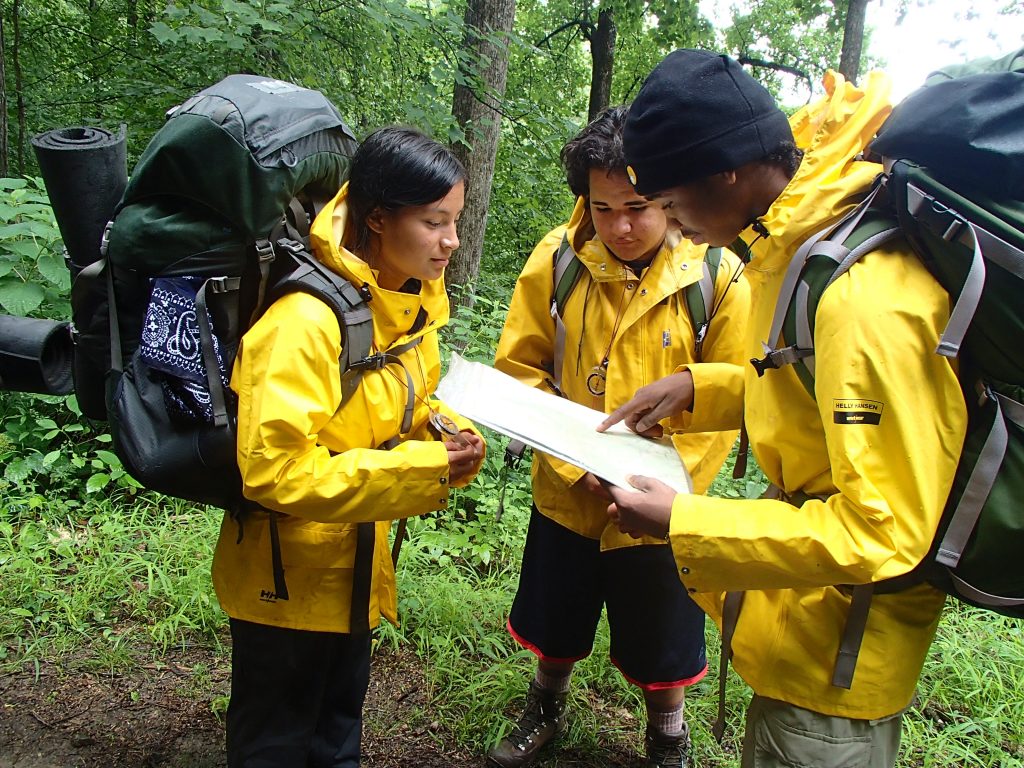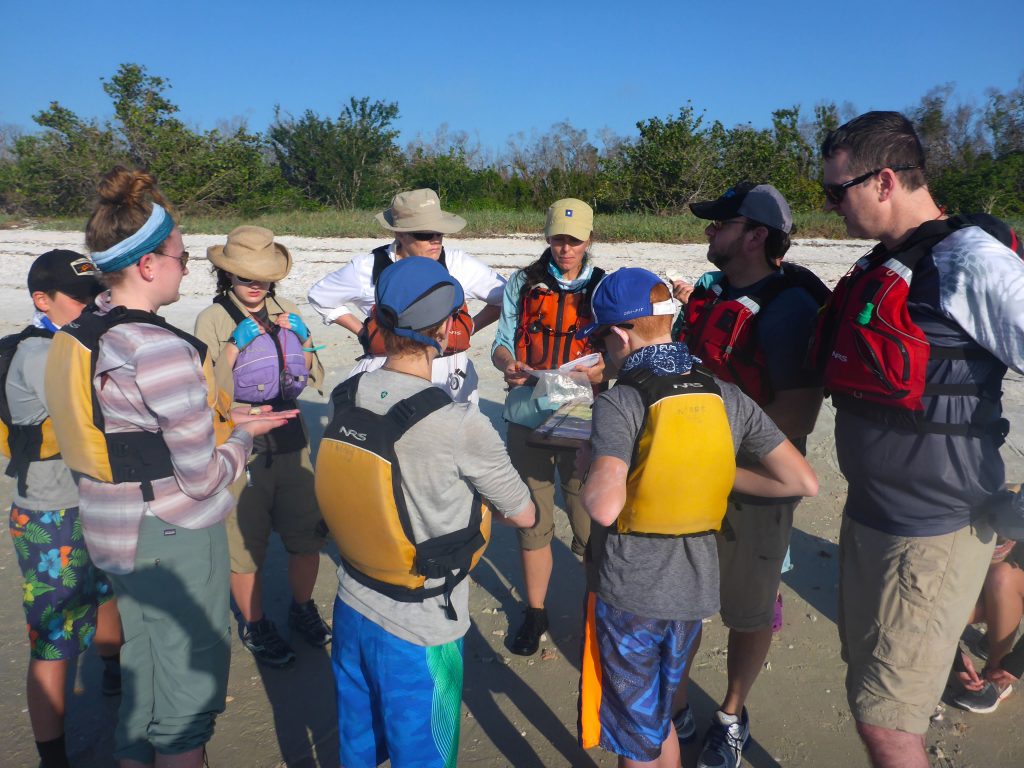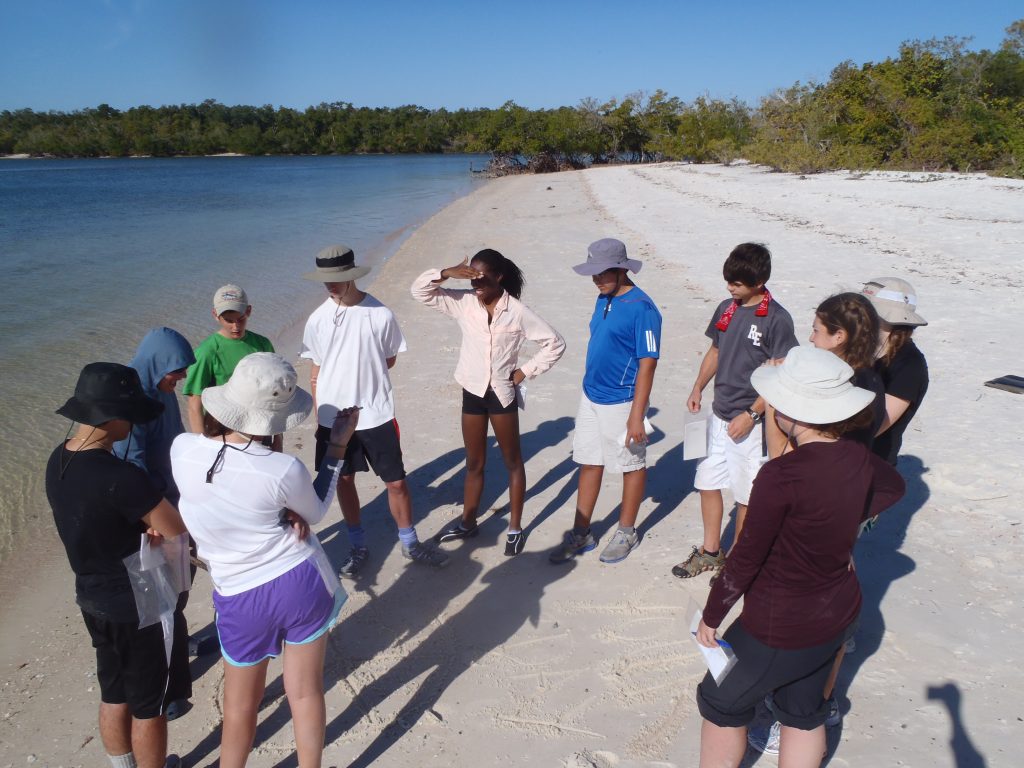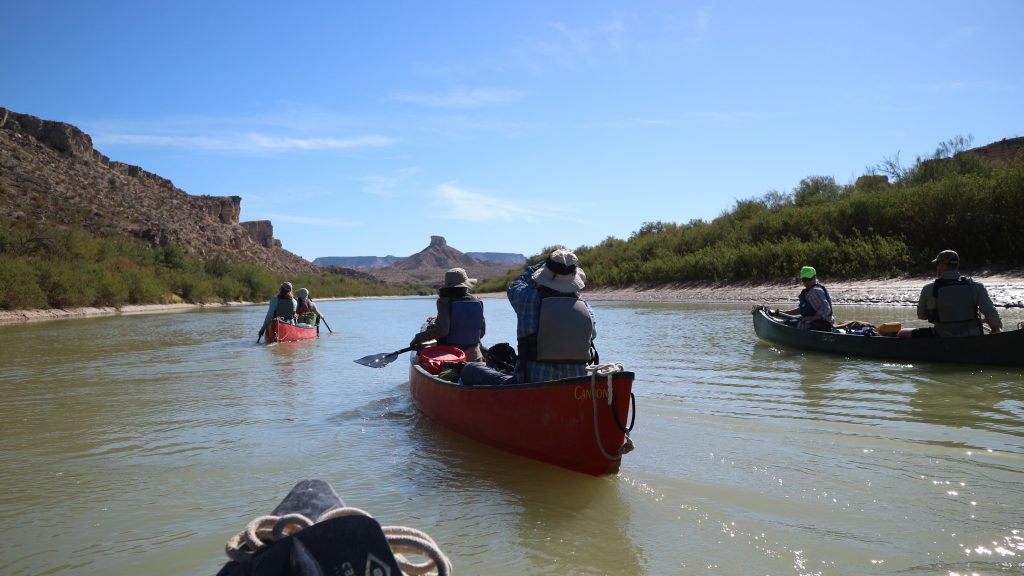Natural consequences happen after you make choices. If you yell at your friend, she will be upset. After you walk barefoot in the road, your foot could get cut. If you don’t tie your canoe to the shore, you could lose your canoe. These lessons come naturally from making decisions. And they happen in your everyday life, too. For example, if you choose to watch Netflix until 3am, you’re likely tired the next day. Or if you choose not to start an assignment until the night before it’s due, you don’t have enough time to complete it. The trained eye sees them everywhere. On a wilderness course, natural consequences are often heightened, giving you the opportunity to truly see the impact of your choices on a day-to-day basis.

On a wilderness course, natural consequences are often heightened, giving you the opportunity to truly see the impact of your choices on a day-to-day basis.
Example 1: The Raccoons
Recently, about halfway into a course, my students completed their first evening schedule, independent of Instructors. They ran the group chores, set up their tents, cooked dinner, ran our evening meeting and went to bed—all with Instructors observing in the background. The one task they forgot, however, was the trash. Because of the course area we were in, students were supposed to place the trash in a bucket or a tightly sealed cloth bag and place heavy cargo on top of it in order to keep animals (raccoons) away. On this occasion, the trash was left sitting on the sand in the kitchen. When we awoke the next morning, all of our waste from 10 days of canoeing was strewn throughout the campground and beyond, ending in a thick trail leading off into the bushes. Trash, unfortunately, had been the sole responsibility of one student, who immediately realized her mistake and rallied her crew to help solve the problem.
For this particular student, it gave her a chance to take ownership for her actions. She shared with her crew that she was feeling overwhelmed with all of the responsibilities she had, so they were able to problem solve and find a solution moving forward.
An experience like this gives you an opportunity to examine your choices. Seeing the way choices have a direct impact on your own life, and the lives of those around you, is a profound and eye-opening experience.

Seeing the way choices have a direct impact on your own life and the lives of those around you is a profound and eye-opening experience.
Example 2: The Long Break
On another course, my students were navigating independently to their next campsite when they decided to take a break. Unfortunately it had been a challenging morning; we left camp at 10am and were already on track for a late night. With tensions already high, a couple students decided they wanted to take an extended break, every 15 minutes for the next two hours. Our breaks became more frequent and longer, and when we finally arrived at camp around midnight, we didn’t have any light or energy to set up an impressive camp. We chose the first opening we could find, set up our tents and went to bed.
In this scenario, a small group of students made choices that ended up affecting the larger group as a whole. The greatest natural consequence of this situation was conflict within the group. The next day we had to spend a lot of time mediating conflicts between students who were frustrated with each other.
This sort of conflict is an excellent window into how our choices impact others and how even a choice that you make for yourself can have consequences that affect those around you.

Natural consequences can result in group conflict. We see how our choices impact others, and how a choice that you make for yourself can have consequences that affect those around you.
Example 3: The Positive Natural Consequence
Although natural consequences can be associated with negative results, they can also be incredibly positive, allowing you to see the strength of your own choices in the moment. An example of this came at the end of a desert-based wilderness course I instructed. On the last day of the course, in spite of having set up camp in a valley full of cacti, we woke up to an inch of snow on the ground all around our camp. My students, having spent five days previously in the rain, had developed a strong sense of camp organization, keeping each piece of gear in a clear and easily accessible location. Waking up to a ground full of snow—while shocking—didn’t throw us off our travels. In fact, because we were so organized, our crew was able to enjoy the snow even more, having time to build snowmen, have snowball fights and really take in the natural beauty that surrounded us.
When living in the wilderness, much more time is focused on routines, relationships and physical challenge. It’s in this repetition that natural consequences shine their brightest. Embarking on a wilderness expedition can be one of the most powerful choices you make. The more open you are to the lessons that present themselves, the better prepared you will be to enjoy every moment and learn from the challenges that arise. And although natural consequences may be more obviously present in the wilderness, they’re also incredibly present in our lives at home. Your choices, no matter where, affect the things that happen in your life. Seeing them in the wilderness can make it easier to make that connection.

Your choices, no matter where, affect the things that happen in your life. Seeing them in the wilderness sometimes makes it easier to make that connection. Photo by Steve Leroi.
About the Author
Rebecca Fenn is an outdoor educator, originally from California, who instructs for NYC Outward Bound Schools and North Carolina Outward Bound School. After graduating from University of Chicago with a major in Human Development, Rebecca worked in college admissions and then began her journey toward outdoor education. She became the Life After Eagle Rock Fellow at Eagle Rock School and Professional Development Center, a wilderness-based boarding school in Estes Park, Colorado. There she taught at-risk students “Math for Life” and served as both a college counselor and as a vocational counselor to prepare them for life after Eagle Rock. Upon receiving a Master’s Degree in Education Policy from Harvard, she decided to delve deeper into the Expeditionary Learning model by taking on the challenge of becoming a Field Instructor for Outward Bound. Rebecca is a cartoonist, artist and writer, and loves the challenges and rewards of working with youth in the outdoors. She is always interested in learning more about educational systems, cultures and practices in the United States.
OTHER POSTS YOU MAY LIKE
Read More
Read More
Read More




